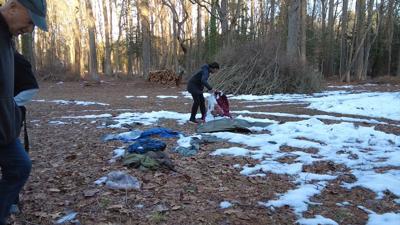DENTON, Md. - Homelessness across Maryland’s Mid-Shore region has increased significantly since last year, according to new data from an annual survey.
Each year, volunteers and shelter workers conduct the Point-in-Time Count, a nationwide effort to identify individuals living in cars, on the streets, in encampments or in shelters. This year’s count revealed a 50% increase in sheltered individuals and a staggering 400% increase in those who are unsheltered.
But are shelters shocked?
“Not at all. The calls that we receive each day from people that we have to turn away from shelters… those numbers continue to rise,” said Stefanie Johnson, executive director of His Hope Ministries.
During this years county in January, groups from local shelters and outreach teams participated in the effort. Mid-Shore Behavioral Health, which collected the data, said the increase in numbers is likely due to a more accurate approach in locating unhoused individuals.
“So we identified the camps prior to doing the count. And how do you do that? Well, you talk to social services, you talk to law enforcement, we talked to people that are living in the shelters that were living in those camps,” said Jimmy Morris with Mid-Shore Behavioral Health.
In total, 179 people were found to be sheltered, and 16 were unsheltered across the Mid-Shore region. However, the count only includes individuals who completed the necessary paperwork, meaning the actual numbers are likely higher.
It’s a growing issue, Morris said—and Johnson agrees.
“We're actually trying to build a year-round shelter or find a space where we can build or renovate or whatever, a year-round shelter. So that’s going to help at least get them off the streets,” said Johnson.
Both Johnson and Morris say the biggest need is more housing.
“When it comes to the ultimate reason for homelessness, it's affordable housing,” Johnson said.
“In all, for workforce development, I think that’s a great first step,” Morris said.
The Point-in-Time Count plays a critical role in securing federal funding—about $2.5 million—for rental assistance, shelters and essential supplies such as bedding and food.



